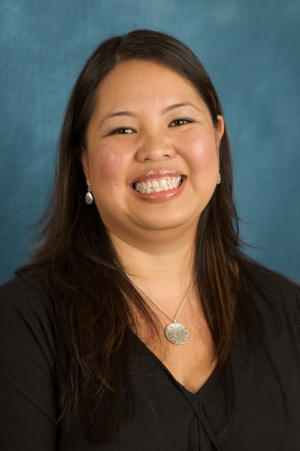HuffPo Op-Ed: Rebuilding Stronger After Typhoon Haiyan
April 29, 2014 / by Annalisa Enrile- Opinion
The last time I visited Tacloban City in the Philippines was 2007. I stayed with a local family who warmly welcomed me into their lives. They lived in abject poverty in a seaside shanty town of plywood and corrugated steel.
Their house, and the rest of Tacloban City, is gone now, swept into the ocean. Instead, there are piles of wood, downed electrical poles, beached ships, and the remains of everyday life strewn among the rubble. Typhoon Haiyan (locally known as Yolanda) decimated the area six weeks before my arrival, but it might have been yesterday, with little rebuilt or cleaned up. Haiyan left almost 9,000 dead, and affected hundreds of thousands more.
I heard about this "super" Typhoon, watching in horror, feeling helpless on this side of the Pacific, while Filipinos begged the world for the most basic needs and the most basic kindness. What could I do? What could my school do to make an impact in the immediate aftermath, where every moment counts? Through our long-standing partner, WeGovern Institute in the Philippines, we arranged the University of Southern California's School of Social Work Humanitarian Mission to the Philippines.
Beyond Relief
Once there, we went directly to the hardest hit areas, the islands of Leyte and Samar, to talk with survivors and understand what they still needed -- physically and emotionally, as much as financially. With a multitude of international agencies, private groups, and individual volunteers providing immediate relief, we wanted to do something broad-reaching that would also help with long-term rebuilding.
The destruction is overwhelming, so it was difficult to know where we could help most. Neither tent cities nor temporary housing were sufficiently addressing needs. We could foresee the outcry against such inefficiency, and the potential effect on families and communities. Because the Philippines is one of the world's hardest hit areas in terms of weather and natural disasters, it is imperative that rebuilding not just take place haphazardly, but that we rebuild stronger.
United in our common role as social workers, we knew that the first step is to create cross-collaboration. We had to think beyond what was normally done to address these disasters and focus on innovative strategies, adaptive capacity, and of course, empowerment.
Time and again, we heard Filipinos are "resilient." While it's an oft-repeated cliché, it's also true. It was evident in children's peals of laughter during a local hula-hoop contest, in the women's tears of pain and joy when talking about family members, lost and found, even in the anger expressed over the government's slow and inadequate response. The overwhelming devastation and loss was counterbalanced with a persistence to survive. There was the Monsignor of Santo Nino Church, who offered 20 hectares of church land for temporary housing; the daycare workers who lost their own children, but still cared for almost 100 other kids so they could resume school; the women who rebuilt their coffee shop for aid workers to find respite after long days of work. Most touching was a group of children Christmas caroling, and a young child of 11 who summed it up best when she said, "Typhoon Yolanda shall never stop us."
A Sustainable Framework
What we learned is that to ensure a lasting change in the recovery process, aid can come in the form of knowledge and education, not only parachuting in with money or goods. The best way to help, then, is not by trying to be a hero, but a genuine partner. The Philippines has professionals, academics, organizations, and institutions that are more than capable of rebuilding their country. Instead of replicating their work or worse -- inflicting our own agenda, we need to forge partnerships that focus on equal participation, contributing our specialized skills on both sides. It's the only way to create a sustainable framework for continued recovery. In these times of disaster and crisis, the best thing we can provide is access to resources, sharing of expertise, and collaboration on innovative, strength-based solutions.
While our mission was successful, it's just the first step in a long journey. The Tacloban I knew in 2007 may physically be gone, but the people, and their dignity, hope, and faith are still there, as is their laughter and warmth. These are our partners, who we will work with so that needs are met and communities are rebuilt, long after relief goods run out.
This op-ed originally appeared on Huffington Post.
To reference the work of our faculty online, we ask that you directly quote their work where possible and attribute it to "FACULTY NAME, a professor in the USC Suzanne Dworak-Peck School of Social Work” (LINK: https://dworakpeck.usc.edu)
